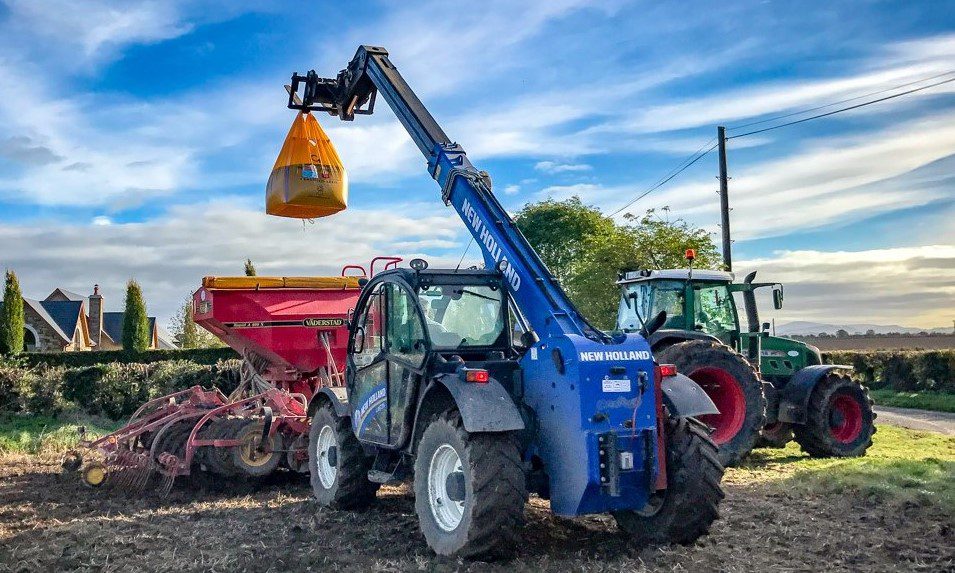Irish certified seed is a high-quality product. Donal Fitzgerald, Goldcrop, explained what makes Irish seed different at a recent Irish Seed Trade Association (ISTA) seminar in Co. Carlow.
Ireland is one of just four countries in the world, he said, to have an independent certified seed programme that’s fully audited by the Department of Agriculture.
“The one major difference between our certification system and other countries is that our system is one of official certification; opposed to other countries, which have certification under official supervision.
“In Ireland, the certification system is run by the Department of Agriculture from start to finish. In other countries, the ministry will audit a portion of the work.
The system we have in Ireland is really robust. It’s independent and all steps of the process are audited by the department.
“That gives us a situation where there are no grey areas. It’s black or white. Everything is monitored and written down. It’s a bit like filling out your BPS (Basic Payment Scheme) application; there are a lot of steps along the way.
“The Irish system is audited and regulated by European rules and is supporting growers with extra premiums.”
- Certified seed is free of any impurities or small grains;
- Has a high germination percentage to ensure high establishment percentages;
- Is free from pests and diseases.
He added that certified seed is particularly important for the food industry, so that milling wheat, malting barley and food-grade oats are fully traceable.
Understanding your seed label
Every bag of seed in the world has to have a label. It is illegal to trade in non-certified seed. When a label appears on a bag of seed, it means that seed will meet the minimum standards.
Every seed label will have a lot number. Fitzgerald explained this code to the farmers in attendance at the ISTA seminar.
The first number – 17 – is the year in which the seed was produced. The second number – 11 – is the assembly number. ‘C’ is the generation of seed.
The final number identifies the variety. Each variety has a different number. For example, Paustian is number 50 and Planet is number 35.
Three inspections throughout the season
Unlike other countries, which carry out just one inspection a year, Irish seed is inspected three times during its growing season.
The first inspection is carried out early in the season. At this time, field details are checked and plant counts are carried out.
The main inspection is undertaken when the crop is heading out. This inspection determines if the crop is pure. It is also examined for weeds, to see if the crop is uniform and is free from diseases.
In many countries, this is the only inspection that a seed crop will receive. From the time a crop heads out – to the time it is harvested – there can be a lot of changes.
Late-germinating weeds can be problematic in some crops and this is why a pre-harvest inspection is important.
“We also have a pre-harvest inspection in Ireland. The department will go out a week or two before harvest and check that the crop hasn’t changed in any way and that no foreign material has come into the crop between the main inspection and the pre-harvest inspection.”
Wild oats
He added that the Irish Seed Certification Scheme has a zero-tolerance rule on wild oats.
One strong string to our bow, which was always in place, is that we have zero tolerance to wild oats. We’re one of only four countries in Europe that has a zero tolerance on wild oats in the field. It’s worth stressing that.
“Certified seed has no wild oats in it. In Ireland, we don’t allow someone to harvest a crop that has wild oats in the field. But, in other countries, you can harvest a seed crop with wild oats in the field and take your chances on getting a clean sample.
“If there are wild oats in the field of a seed crop in Ireland it doesn’t even get into the certification scheme,” he said.
Grass weeds
Grass weeds can have detrimental effects on cereal crops. Blackgrass has taken over arable land in parts of the UK. With this in mind, the Irish Seed Certification Scheme has a zero tolerance rule on grass weeds.
“We decided that we needed to introduce zero tolerance for grass weeds, including blackgrass, sterile brome and canary grass,” Fitzgerald.

